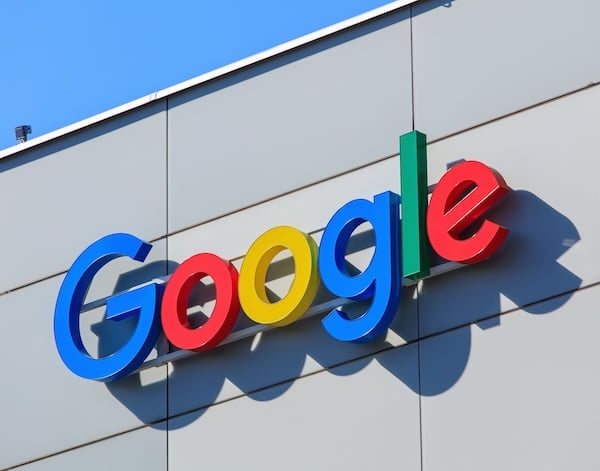In a surprising move, Google has announced that it will no longer proceed with plans to phase out third-party cookies in its Chrome browser. The decision, revealed by various industry sources, marks a major shift in Google’s approach to online privacy and ad targeting.
Below we detail the main points and how they impact advertisers and affiliates.
Decision to retain third-party cookies
Following Google’s announcement that it will eliminate third-party cookies by 2023, the digital advertising industry has been preparing for a cookie-free future for years.
However, Google’s recent updates indicate that third-party cookies will remain part of the Chrome ecosystem. Rather than eliminating third-party cookies, Google plans to introduce new privacy features within Chrome to give users more control over their cookie settings.
Why did we change it?
Google’s decision appears to be influenced by several factors, including feedback from advertisers, publishers and regulators.
The company’s Privacy Sandbox initiative was designed to find alternatives to cookies, but it faced several challenges, including limited testing with a small user base and concerns about the impact on performance and revenue.
Impact on affiliate programs
For affiliates and affiliate managers, the initial announcement of the removal of third-party cookies raised concerns about tracking, attribution, and overall program effectiveness.
Third-party cookies have long been the foundation of digital advertising, allowing for precise tracking of user behavior across different websites. Many feared that without them, our ability to accurately measure the performance of our affiliate marketing campaigns would be greatly diminished.
- Stable ad performance: Google’s decision to maintain the third-party cookie means affiliates can continue to rely on their existing tracking methods. This means that attribution of sales and leads to specific affiliates is clear and verifiable, which is essential to maintaining trust and transparency within affiliate networks. Accurate tracking ensures affiliates’ efforts are properly rewarded and fosters a healthier, more engaged ecosystem.
- Privacy Sandbox continues: Third-party cookies will remain, but Google is not abandoning the Privacy Sandbox. The initiative will continue to receive investments to improve privacy features and develop new APIs. Advertisers can expect a hybrid approach where cookies and enhanced privacy tools coexist.
- Corporate ComplianceOur new approach aims to balance user privacy with the needs of the industry. By working closely with regulators, such as the UK’s Competition and Markets Authority (CMA), we aim to ensure compliance with privacy laws while preserving our ad-supported business model.
- Strategy optimization opportunities: Affiliate managers have the opportunity to optimize their strategies without feeling any imminent pressure to move to alternative tracking technologies. This stability allows them to more carefully consider and integrate new solutions, such as first-party data strategies and enhanced privacy measures, which can coexist alongside third-party cookies for now. This gives them the space to try out these new methods and implement them gradually, ensuring a smoother transition when the industry inevitably moves toward tighter privacy controls.
Impact on Affiliates
Google’s decision will have an especially big impact on affiliates, who rely heavily on precise tracking and targeted advertising to drive conversions. Here’s why this matters to affiliates:
- Continuous access to robust data: Third-party cookies provide affiliates with detailed data about user behavior, enabling more effective targeting and personalized marketing. Retaining cookies allows affiliates to maintain their current data-driven strategy without interruption.
- Consistent revenue stream: Many affiliates were concerned about reduced revenue due to the potential deprecation of cookies. The decision to keep cookies means affiliates can expect continued performance and revenue levels, ensuring financial stability.
- Opportunity for gradual adaptationAs the Privacy Sandbox continues to evolve, affiliates have more time to adapt to new tools and methodologies. This gradual transition allows them to test and optimize without feeling the immediate pressure to move to a cookie-less environment.
What’s next?
While Google’s announcement provides some temporary relief, it is essential that affiliate programs remain proactive, as the industry-wide trend remains toward greater privacy and less reliance on third-party cookies.
Affiliates and managers should use this time to invest in building out strong first-party data capabilities and explore new technologies such as server-to-server tracking and browser APIs like Google’s Privacy Sandbox. Here are some areas that affiliate managers and affiliates should focus on going forward:
- Stay up to date: Stay up to date with news from Google about the Privacy Sandbox and new features and changes to our Cookie Policy.
- Testing new tools: We will begin experimenting with Privacy Sandbox APIs and other privacy-preserving technologies to prepare for future changes.
- Increase transparency: Use this time to increase transparency and build trust with your users by clearly communicating how you will use their data and offering strong privacy controls.
Educational Resources and Training
Educational resources and training programs are essential to help affiliates and managers navigate this changing landscape.
By leveraging first-party data, using privacy-conscious tracking solutions, and understanding how to comply with evolving regulations, the entire affiliate marketing community can adapt and thrive in a future where third-party cookies may eventually be phased out.
Conclusion
For now, Google’s decision to retain third-party cookies presents a golden opportunity for affiliates and affiliate managers. Use this period to strengthen your strategy and prepare for future changes to ensure continued success and resilience in the dynamic world of digital marketing. The key is to strike a balance between using current technology and gradually adopting innovative solutions that align with the evolving privacy landscape.
Affiliates, in particular, can rest easy knowing that their current tracking and targeting strategies will still be valid, allowing them to focus on improving their performance and revenue in a stable environment.


